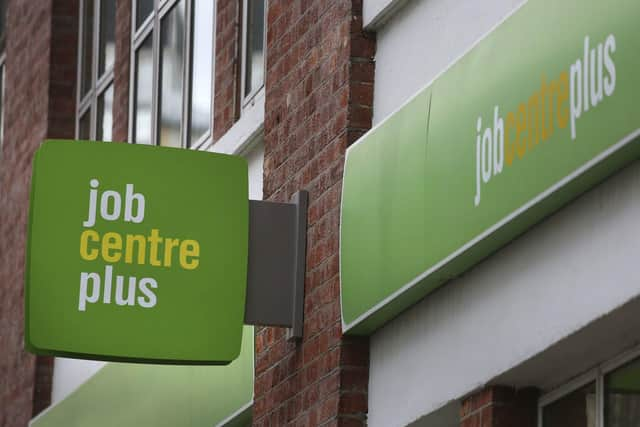Scots jobs market remains fragile amid increased market uncertainty, says Royal Bank of Scotland report
The Scottish labour market continued to display the weakness seen over the last 18 months, although output by UK firms has risen in a positive sign for the economy, according to two new studies.
Royal Bank of Scotland (RBS) has unveiled its latest Report on Jobs in Scotland, compiled by S&P Global, showing a “sustained” deterioration in permanent staff placements across Scotland during March, with this index scoring 42.6, below the 50 threshold separating contraction and growth. The rate of contraction eased slightly from February's 15-month nadir of 41.1, but remained rapid overall, and respondents said the latest downturn was linked to fewer vacancies, companies looking to cost cut, and increased market uncertainty.
Advertisement
Hide AdAdvertisement
Hide AdTemp billings rose across Scotland last month, with this index increasing for the second straight month to post 51.1, above 50 for the first time since December, but the rate of expansion “modest... and weaker than the average recorded over the series history”.


Looking at the supply of candidates, March data revealed a fall on the permanent side to 45.2, extending the current run of decrease to 38 months, and NatWest-owned RBS said that despite the rate of contraction easing to the weakest since mid-2023, it remained sharp overall. On the flipside, a sixth successive monthly rise in temp candidate availability was recorded to reach 51.7. Recruiters linked the upturn to projects coming to an end, which helped free up labour. “The rate of growth softened to a five-month low and was modest overall, however,” the report also said.
The index for average starting salaries for permanent new joiners rose to 54.4, and labour shortages and increased bids to secure suitably skilled candidates turned up pressure on pay, panellists said. The first quarter of the year ended with a further rise in temp wages to 54.9, thereby extending the current run of inflation that began in December 2020.
Recruiters across Scotland recorded an eighth consecutive monthly fall in the number of permanent vacancies in March, to score 43.5, and demand deteriorated across all eight monitored sectors, with executive and professional ranking seventh at 36.7, although up from February’s 35.6. Temporary job vacancies in Scotland also retreated last month, with this index settling at 45, thereby extending the current run of contraction to eight months, and executive and professional ranked last of all sectors, broadly flat at 35.8.
RBS chief economist Sebastian Burnside said: “The Scottish labour market continued to exhibit weakness, which has now existed for the most part of the last one-and-a-half years. Latest survey data highlighted that uncertainty regarding the outlook and firms looking to cut expenses impeded hiring activity.”
Separately, the new Business Trends report from accountancy firm BDO shows that output from UK firms rose for the second consecutive month to its highest level in nearly two years, marking a “turning point for the UK economy”. Its output index, which covers the UK’s services and manufacturing sectors, climbed to 102.39 in March, its highest reading since May 2022. Partner Kaley Crossthwaite said the data “illustrates the UK's robustness in the face of global economic adversities”, adding: " All eyes are on the Bank of England, with an interest rate cut looking possible for June, as businesses hold out hope for a further recovery this year.”
Comments
Want to join the conversation? Please or to comment on this article.